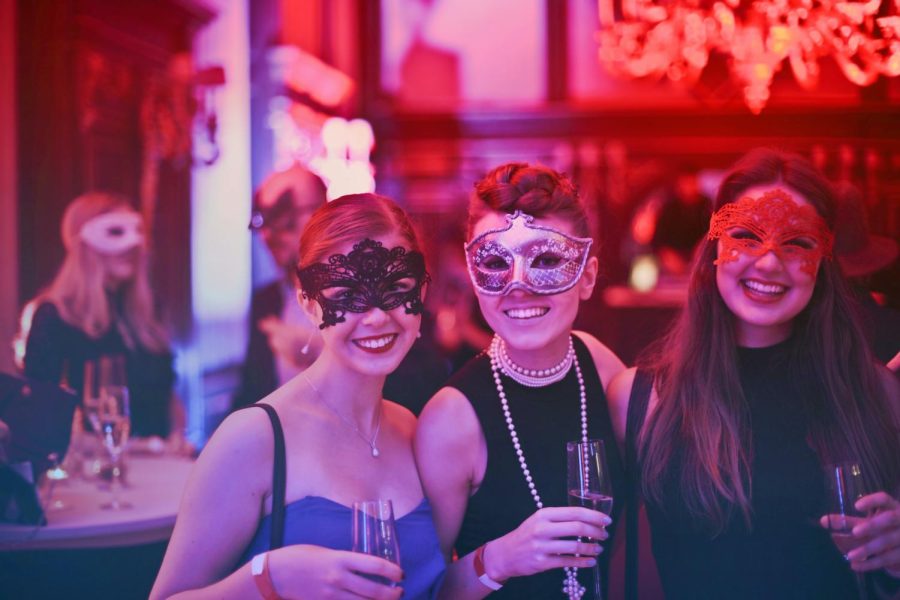Halloweek: Harmless or Wreaking Havoc?
As a lover of everything grim and gory, Halloween has always held a special place in my heart. From the fun costumes to the candy to the scary movie watch parties with friends, Halloween is unlike any other holiday. But has this lighthearted mischievous celebration turned into something more sinister? Now that we are older and more responsible, are us college students abusing this holiday as a way to wreak havoc and ignore our work?
Simply put: no. Halloween and the way it is celebrated is not only fun, but a crucial break from our day to day lives. Halloween only comes around once a year, and we need celebratory events in our world. “Halloweekend” is a harmless college tradition.
This year, partying and going out started as early as Thursday and lingered on until Halloween’s actual date. People dressed up in revealing costumes and went out to clubs in Manhattan or nearby bars in the Bronx.
In all probability, there was likely excessive drinking and partying. Does excessive drinking on “Halloweekend” make the holiday a glorification of binge drinking? In all honesty, yes. To some extent, the holiday glorifies binge drinking. How could a holiday centered on friends going out dressed up in costumes not cause at least some sort of excessive drinking in an age group that already parties a disturbing amount on a normal weekend?
While Halloween celebrations include a large group of partiers, that does not mean that the holiday itself is the sole cause of binge drinking in America, and as such, it should not be what’s targeted in fixing America’s alcohol related issues. In fact, binge drinking in college life is not the result of one weekend of fun, but rather the result of a toxic drinking culture in America stemming from strictness over alcohol in general.
The National Youth Rights Association states that “Many other countries with stricter alcohol prohibition than the US have worse long-term alcohol problems. Many other countries with easier access to alcohol than the US have fewer long-term alcohol problems.” If we want to fix the issue of binge drinking, instead of focusing on Halloween weekend’s parties, we should spur large-scale change that will cause a cultural shift on how our society views alcohol.
Instead of treating alcohol as a taboo and hence increasing its “coolness” and unattainability, we should discuss alcohol’s effects without condemning those who seek them. Alcohol should be treated as something that the vast majority of our youth will encounter. Discussing its health risks without using over exaggerated fear tactics is very important to combating the extreme misuse of alcohol. We should improve our society’s work culture and work-life balance instead of teaching our children that they should have all their fun before they are 30 years old and chained to a soulless corporate world. Shifting cultural norms such as these will be much more effective in dealing with the issues of binge drinking than condemning Halloween celebrations.
It is also important to note that Halloween this year was likely more extreme because of the pandemic and our inability to go out at all in recent past years. Now that three-quarters of adults are vaccinated, our response to COVID-19 does not include complete isolation and abstinence from social gatherings.
I would like to clarify that the virus is still very prevalent and harmful, but CDC recommendations involving mass quarantine are not currently necessary. As such, it makes sense that the social gatherings are slightly more intense as a reaction to having been denied them for so long. However, that does not mean they will continue to grow in intensity. “Halloweek” is not a new trend that needs to be addressed or a growing problem that will get out of control. It is a completely logical reaction to current events and it is also relatively harmless, considering it occurs only once a year.
Halloween is fun. In a world where suffering is a constant, moments of harmless happiness should be allowed. Halloween is only once a year, it’s relatively inoffensive and it creates a community where people can meet new people, have fun with their friends and create memories of a lifetime. So why should we get rid of it? Let people have their fun! And at least this way, when we are all old and decrepit, we can have a fond memory to look back on.
Sofika Levytsky, FCRH ’26 is undecided from Parsippany, N.J.










































































































































































































